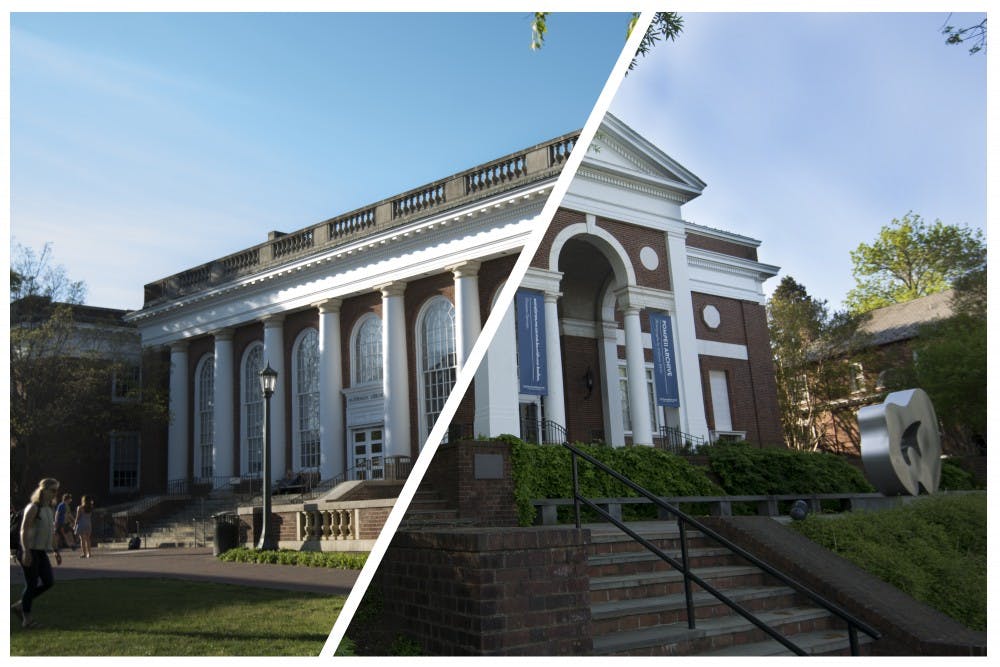The Trump administration’s 2020 budget proposal calls for the elimination of the National Endowment for the Arts and National Endowment for the Humanities, and the University currently stands out as the number one recipient of funding from the National Endowment for the Humanities among hundreds of colleges and universities in the U.S. NEH and NEA are federal agencies which provide grants to support research, education, preservation and public programs in the arts and humanities, and the University uses grants from these two agencies to fund a myriad of programs within schools and smaller projects.
According to their website, the National Endowment for the Humanities approves grants to museums, archives, libraries, colleges, universities, public television, radio stations and to individual scholars. Meanwhile, recipients of grants from the National Endowment for the Arts are typically theaters, art museums, dance companies, community groups and schools with strong arts programming.
The two programs were launched in the 1965 under President Lyndon B. Johnson’s “Great Society” initiative — a set of domestic spending programs launched in the 1960s to address education, healthcare, criminal justice, transportation and racial and wealth inequality.
This proposal marks the third time in which the administration has called for the endowments’ elimination — similar proposals to cut funding to the two agencies in fiscal years 2018 and 2019 were ignored by Congress. Congress has yet to come to a resolution on its budget for the fiscal year 2020, but John Unsworth, Dean of Libraries, finds the elimination of the National Endowment for the Humanities and the National Endowment for the Arts unlikely.
“I would say there's zero chance that the NEH will be eliminated, actually,” Unsworth said. “I think it's important to understand presidential budgets for what they are — they're an opening gambit in a process. They are usually more of a rhetorical move than a real fiscal proposal.”
According to The Chronicle of Higher Education, the University ranks number 1 among nearly 900 colleges and universities in terms of the number of projects funded by the National Endowment for the Humanities as well as in the total amount of approved awards. University spokesperson Anthony de Bruyn explained that in fiscal years 2017, 2018 and 2019, the University received $5.97 million in funding from the National Endowment for the Humanities and National Endowments for the Arts.
A significant portion of that funding went to the Virginia Humanities, a state humanities council headquartered at the University that aims to connect Virginians with their history and culture. These state humanities councils are created by funding and support from the National Endowment for the Humanities, and one exists in every state. Federal funding is critical to these councils’ continuance.
In 2016, the Virginia Humanities received 21 percent of its $6.2 million budget from the National Endowment for the Humanities. Meanwhile, the Commonwealth provided 19 percent of council’s funding, and 10 percent came from the University.
“Congress represents each of the 50 states, and each of the 50 states has a piece of the NEH in the form of these state humanities foundations,” Unsworth said. “With the NEH, every state is a stakeholder.”
The agencies provide significant monetary support to the University — however, funding to the two agencies comprised less than one percent of of the government’s 2019 budget.
“One must question the motives behind such an announcement as these cuts would in no way significantly impact the Federal budget,” said Matthew McLendon, director of the Fralin Museum of Art, in an email to The Cavalier Daily. “They will, however, significantly impact the arts in communities across the nation.”
At the University, funding from the National Endowment for the Humanities and the National Endowment for the Arts has historically supported programs such as the Presidential Papers projects, the Virginia Quarterly Review, the Architectural History department and the Fralin Museum of Art.
In 2018, grants from the National Endowment for the Humanities funded a three projects at the University. One of the projects explores the 1979 Greensboro Massacre — which resulted in the deaths of five labor and racial justice organizers and the ensuing trials of the white supremacists who shot them in Greensboro, North Carolina. Another project studies how U.S. technology companies and the Chinese government produce global effects. The final project works to digitize Bernard Narokobi's "History of Wautogik Village" manuscript.
In the fiscal year 2019, the two grant programs were each allocated a budget of $155 million after Congress rejected Trump’s initiative to end federal support for the agencies — an increase from the agencies’ $152.8 million budget in 2018. This year, the White House proposes the allocation of $38 million to the National Endowment for the Humanities and $29 million to the National Endowment for the Arts for the agencies’ closure over the next two years. Trump has stated that he does not consider the activities of the two agencies “to be core federal responsibilities.”







